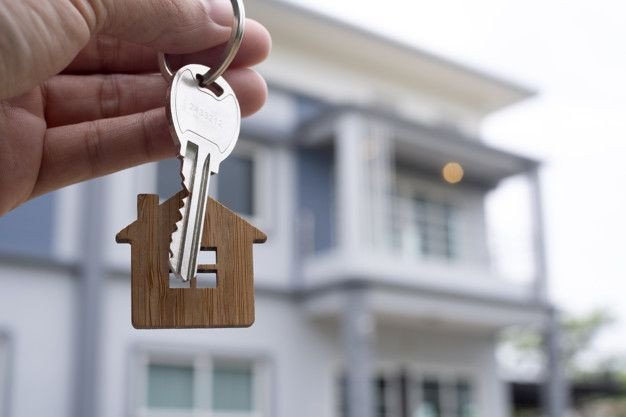
Preparation before buying new house
Everyone dreams of owning their own home. However, buying property or a first home, in particular, is not as easy as one might think. There are various processes to go through, along with dozens of document copies to be prepared, in addition to the lengthy waiting period for housing loan approval.
However, when considering a housing project, it’s important not to rely solely on myths about home buying, such as providing only 10 percent of the home price as a down payment. While technically true, the home buying process also includes various costs such as stamp duty, application fees (for some projects), appraisal costs, legal fees (some of which may be free), and home insurance.
Furthermore, many believe that applying for a first home loan together with a spouse, siblings, or parents and children is more economical. However, joint loans should be approached with caution and wisdom as they will affect the percentage of your future home financing.
Typically, first-time home buyers can obtain up to 100 percent financing from the bank, and this amount will decrease for second homes, third homes, and so on.
First-time home buyers are advised to research several comprehensive steps before signing a housing loan agreement, such as understanding their goal of buying a home.

Examine Your Needs
If you’re purchasing a home for occupancy, ensure it meets your and your family’s needs, such as proximity to facilities like schools, mosques, supermarkets, restaurants, and banks.
If you’re buying a home for investment purposes, prioritize future returns and consider whether it will be used to recoup capital gains or generate rental income.
Various other aspects need to be taken into account, such as whether the property will be in demand now and in the future.
If you’re aiming for rental returns, consider whether the rental income justifies the monthly payments and other expenses.
Thoroughly research and consider these questions before purchasing a home to avoid potential losses and significant debt in the future.
Check Eligibility
Next, assess the eligibility and repayment capability for the housing loan with the assistance of a bank representative or property consultant encountered while visiting the model homes of your preferred housing project.
You can also estimate your loan eligibility using the Debt-Service Ratio (DSR) ratio, which banks also use to determine whether you qualify for a loan or not.
Use the formula (total monthly commitments + housing loan repayment) / net income.
The total monthly commitments are the sum of all monthly payments for all loans you have with financial institutions, including personal loans, car loans, home loans, and others.
The repayment amount for the intended housing loan can be calculated using a bank’s monthly payment calculator.
Net income is your gross income, minus deductions for EPF, SOCSO, Monthly Tax Deduction (PCB), and zakat.
After determining the eligibility for the housing loan, also check the repayment capability for the loan and become a wise buyer.
Cut down on unnecessary expenses and create a monthly budget. From this, you’ll know exactly how much you can allocate to pay for housing commitments.
Be Prepared to Apply
Next, prepare to apply for a housing loan by ensuring timely payment of all commitments. Having a record of even one month’s delay can result in higher interest rates for the home loan, and applications may even be rejected if there are delays beyond that.
Ensure your employment status is permanent, as approval rates for contract-based jobs are very low.
Check your EPF statements and ensure you have complete supporting documents such as salary slips, copies of identification cards, bank statements, and other relevant documents.
Prepare Funds
There are several costs involved in buying a house, so prepare around 13 to 14 percent or possibly more for items like the deposit, legal fees, and stamp duty for the sale and purchase agreement.
The house deposit is typically 10 percent of the purchase price, while 3 to 5 percent covers legal fees and stamp duty for the sale and purchase agreement.
Additionally, there are other additional costs associated with home ownership such as Mortgage Reducing Term Takaful (MRTT) insurance and home valuation fees.
However, most housing loans allow you to include these costs in the loan. Consult your bank for further clarification.
Evaluate Location
One of the most crucial yet often overlooked aspects of home ownership is evaluating the location of the prospective residence.
Compile a shortlist of suitable locations and look for houses near your workplace to save on petrol costs, tolls, and time.
Visit the project site and model homes to examine the surroundings, neighborhood areas, nearby amenities such as schools, supermarkets, restaurants, clinics, and property features such as the number of floors and types of views.
When visiting model homes, inquire with the sales representatives about promotions and the aforementioned list, as well as offers from the developer such as home furnishings and so on.
Some developers offer fully or partially furnished homes to attract potential buyers, which can be advantageous and convenient for buyers when they start living in the respective residence.














